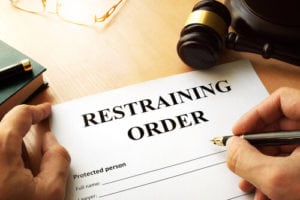Legally Reviewed By:
Brian P. Gabriel, Esquire
 Domestic violence is much more common than many realize. According to the National Domestic Violence Hotline, 1 in 4 women and 1 in 7 men 18 and older have been the victim of physical violence by an intimate partner in their lifetime. The State of Florida has 66 organizations dedicated to helping victims of domestic abuse, which impacts millions of citizens each year. Domestic violence victims often apply for orders of protection to keep abusers at bay after seeking support from a shelter.
Domestic violence is much more common than many realize. According to the National Domestic Violence Hotline, 1 in 4 women and 1 in 7 men 18 and older have been the victim of physical violence by an intimate partner in their lifetime. The State of Florida has 66 organizations dedicated to helping victims of domestic abuse, which impacts millions of citizens each year. Domestic violence victims often apply for orders of protection to keep abusers at bay after seeking support from a shelter.
These orders of protection, known as domestic violence injunctions or restraining orders, are free to file and can help victims flee immediate violence; however, they impose strict restrictions on those they are filed against before they have had the opportunity to defend themselves. The person filing the petition is the Petitioner while the subject of the petition is the Respondent.
How Should I React to a Temporary Restraining Order?
A judge issues a temporary restraining order (TRO) and sets the matter for a hearing to take place within fifteen days of issuing the initial order. The hearing provides the Respondent an opportunity to present his side of the story to the judge before the judge decides whether to grant a permanent injunction.
If you are responding to an injunction in West Palm Beach, you must act quickly to gather evidence to support your side of the story. You should also consider enlisting a domestic violence defense attorney to help you find just the right evidence to strengthen your case.
Immediately upon receiving the order, you should:
- Read the terms of the TRO carefully and obey them. Failing to abide by the terms set by the restraining order can lead to contempt of court charges and may result in fines and jail time.
- Respond to the restraining order. You may contest the TRO by responding to it with your side of the story. An attorney can help you file a response.
- File your own restraining order if you feel threatened by the petitioner. Note, you must have evidence that he or she poses a credible threat.
- Gather evidence for court and arrange to meet with witnesses. An attorney can help you coordinate this step to collect the most relevant evidence in your favor. Reach out to people you know who can testify about the dispute that prompted the temporary restraining order, and who can vouch for you and support your version of the facts.
- Attend the court hearing for the TRO.
Civil injunctions are public record, which may affect your reputation and employment. The sooner you respond to a domestic violence injunction, the better your chance of maintaining a favorable reputation in the community.
Call The Law Office of Gabriel & Gabriel to speak with Attorney Brian Gabriel at 561-622-5575 or fill out a contact form to discuss your restraining order case for free.



